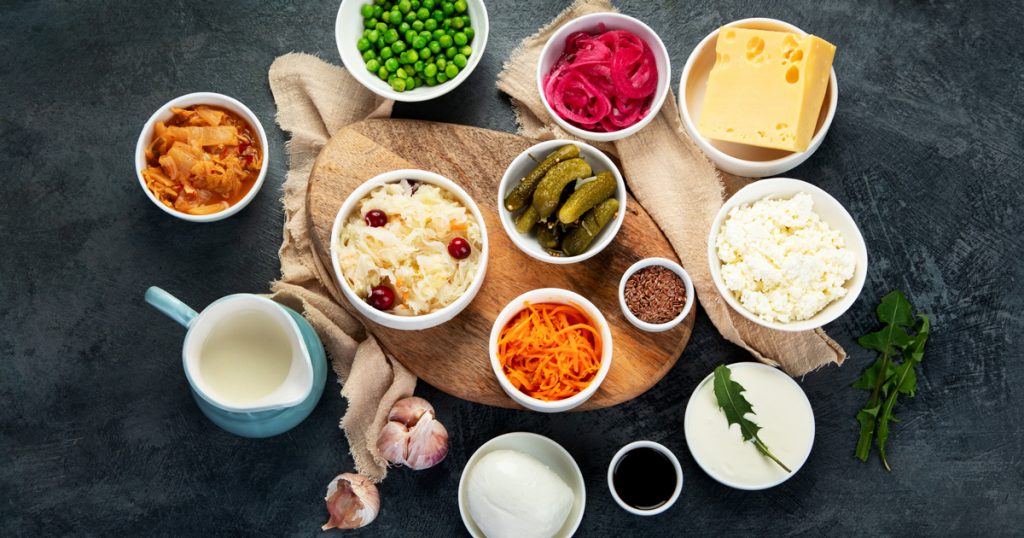In recent years, there has been growing recognition of the importance of gut health in maintaining overall well-being. The gut, often referred to as the “second brain,” plays a crucial role in digestion, nutrient absorption, and immune function. A healthy gut is essential for optimal digestion, nutrient absorption, and overall health and vitality. In this article, we’ll explore the role of probiotics and prebiotics in promoting digestive wellness and discuss how incorporating these beneficial bacteria and fibers into your diet can support a healthy gut microbiome.
Probiotics are live microorganisms that provide health benefits when consumed in adequate amounts. These beneficial bacteria colonize the gut and help maintain a healthy balance of microflora. Probiotics can be found naturally in fermented foods such as yogurt, kefir, sauerkraut, kimchi, and kombucha, as well as in supplement form. By consuming probiotic-rich foods or supplements, you can introduce beneficial bacteria into your gut, which can help support digestion, boost immune function, and improve overall gut health.
One of the key benefits of probiotics is their ability to promote a healthy balance of bacteria in the gut. The gut is home to trillions of bacteria, both beneficial and harmful, which play a crucial role in digestion, nutrient absorption, and immune function. When the balance of bacteria in the gut is disrupted, it can lead to digestive issues such as bloating, gas, constipation, or diarrhea. Probiotics help restore this balance by crowding out harmful bacteria and promoting the growth of beneficial bacteria, which can help alleviate digestive discomfort and support overall gut health.

In addition to supporting digestion, probiotics have been shown to have numerous other health benefits. Research has found that probiotics can help strengthen the immune system, reduce inflammation, improve skin health, and even support mental health and cognitive function. By promoting a healthy balance of bacteria in the gut, probiotics can have far-reaching effects on overall health and well-being.
Prebiotics, on the other hand, are non-digestible fibers that serve as food for probiotics and other beneficial bacteria in the gut. Prebiotics are found naturally in a variety of foods, including fruits, vegetables, whole grains, and legumes. By consuming prebiotic-rich foods, you can help nourish the beneficial bacteria in your gut and support their growth and proliferation. This can help promote a healthy balance of bacteria in the gut and enhance digestive wellness.
One of the key benefits of prebiotics is their ability to promote the growth of beneficial bacteria in the gut. Prebiotics serve as fuel for probiotics and other beneficial bacteria, helping them thrive and multiply. By providing a steady supply of nourishment for these beneficial bacteria, prebiotics help support a healthy balance of microflora in the gut, which is essential for optimal digestion and overall gut health.
In addition to supporting the growth of beneficial bacteria, prebiotics have been shown to have numerous other health benefits. Research has found that prebiotics can help improve digestive health, regulate bowel movements, enhance nutrient absorption, and even reduce the risk of certain chronic diseases such as heart disease, diabetes, and obesity. By incorporating prebiotic-rich foods into your diet, you can support a healthy gut microbiome and promote overall health and well-being.
To reap the benefits of probiotics and prebiotics, it’s important to incorporate a variety of probiotic and prebiotic-rich foods into your diet on a regular basis. This includes foods such as yogurt, kefir, sauerkraut, kimchi, kombucha, bananas, onions, garlic, asparagus, oats, and legumes. By including these foods in your diet, you can help nourish the beneficial bacteria in your gut and support a healthy balance of microflora, which is essential for optimal digestion, nutrient absorption, and overall gut health.
Gut health plays a crucial role in maintaining overall well-being, and probiotics and prebiotics are key players in promoting digestive wellness. Probiotics help support a healthy balance of bacteria in the gut, while prebiotics provide the nourishment needed for beneficial bacteria to thrive. By incorporating probiotic and prebiotic-rich foods into your diet, you can support a healthy gut microbiome, improve digestion, and enhance overall health and vitality. So, next time you’re planning your meals, remember to include plenty of probiotic and prebiotic-rich foods to nourish your gut and support optimal health.





